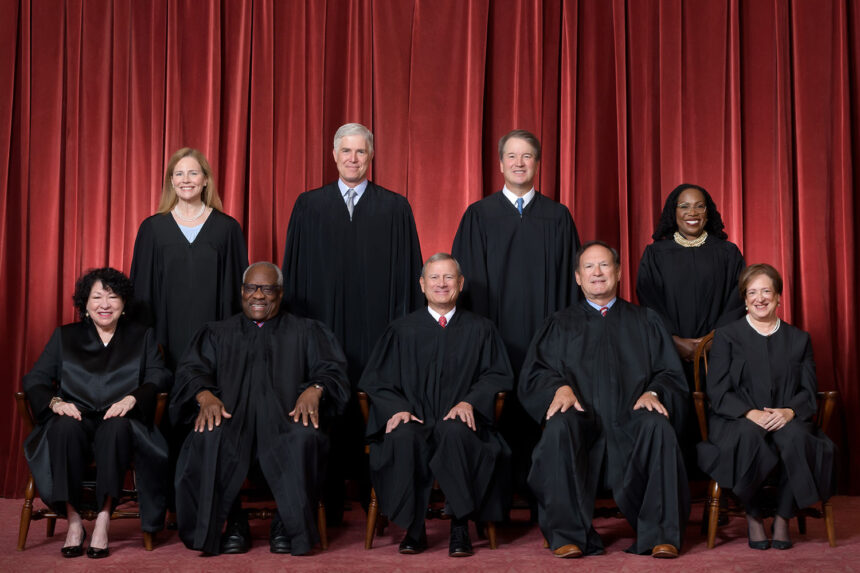
Virginia Governor Glenn Youngkin issued an Executive Order regarding the Election on August 7, 2024. On October 11, 2024, the Department of Justice voted to sue Governor Youngkin regarding the Executive Order and the case is now before the Supreme Court. The fundamental issue at hand is the collision of two Federal Laws, the Motor Voter Act of 1993 and 18USC611 Voting by Aliens.
Governor Youngkin’s Executive Order helps clarify the Commonwealth of Virginia’s compliance with these two Federal Election Laws. The National Voter Registration Act of 1993 (NVRA) (often called “Motor Voter”) mandates the option to register to vote when applying for a Driver’s License in 44 states including Virginia.
There is also 18USC611 called “Voting by Aliens”. For some reason this law is rarely cited or referenced, even by constitutional election integrity experts. 18USC611 makes it clear and indisputable that a person must be a legal US Citizen to vote in a US Federal Election.
The challenge is that for decades no one has bothered to verify that these two Federal Laws are running smoothly and cooperatively. There is a presumption of trust between the Motor Voter and 18USC611. Somehow there is some magical, transparent, auditable process that verifies US Citizenship before Motor Voters’ origin names are put on the rolls. The existence of such a process is a huge presumption of truth – especially if no country has conducted an audit of the alleged process and released the detailed process, audit process, and results to the public.
There also appears to be no interest by the Federal Government in enforcing 18USC611. Attorney General Barr is apparently unaware of 18USC611 during the 2020 election. Recently, the Director of National Intelligence gave a briefing on Foreign Interference in US Elections and did not mention 18USC611 or would not answer the question of whether Illegal Alien voting in US Elections constitutes Foreign Interference.
Perhaps because of the lack of confidence that the Federal Government is ensuring that these two Federal Laws work in harmony, Governor Youngkin chose to address the issue in an Executive Order. Open Border lawyers who try to bring many illegals into the country and sign driver’s licenses have a vested interest in ensuring that no light is shown on the lack of a verifiable and auditable process for validating US Citizenship. Line One on Driver’s License applications in the possibility of all states asking whether the applicant wants to register to vote. Who verifies and ensures that applicants who check “Yes” are legal US Citizens? That’s a big question.
My own Registrar of Elections in Prince William County does not have a responsive “record” to demonstrate that they are following the Governor’s Executive Order of August 7, 2024, nor do they have a process to ensure that the names of Motor Voters are confirmed before they are placed on the electoral roll. In 2019, I did a Freedom of Information Request and found that at least 6% of the names on the electoral roll in my district were illegal voters. Applying other factors, the number of invalid voters on the roll is likely to be 12% or more.
County officials most often referred to as “Registrar” are usually constitutional officers who are responsible, legal, sworn, to ensure voters are valid voters. But my Registrar, and likely many of the 3,300 or so District Registrars across the country seem to consider citizenship validation to take place elsewhere in their state’s bureaucracy.
The Federal Government has failed to address or resolve the apparent gaps and gaps between the two Federal Electoral Laws. The main complaint of the DOJ on October 11, 2024, the lawsuit against Virginia is that Motor Voter provides a window of 90 days before the election in which the name cannot be removed from the Election Rolls – this is also known as the ” NVRA Quiet Period Provision”.
The DOJ apparently says that this 90 day window extends beyond 18USC611. Now the duel is set. Virginia’s view is that 18USC611 supersedes the Motor Voter Act of 1993. To remain on the Electoral Roll, one must be a valid voter. How can they be retained and not removed during this 90 day window if they are not legally on the electoral roll in the first place?
Governor Youngkin of Virginia has stepped in where the Federal Government has failed to act – and he will be prosecuted by the Department of Justice (DOJ). With the SCOTUS case, the showdown has been established; the law that has precedence.
Amicus briefs have been filed. One of the first to come was from the National Election Integrity Association (NEIA), a Virginia non-profit organization focused on free and fair elections (and for full disclosure, I am the Director of NEIA). The predicates of the NEIA Amicus filing in support of Virginia are:
“The NVRA’s Quiet Period Provision, however, does not apply to the exclusion of non-citizens because it is outside the statutory construction of the NVRA. In fact, non-citizens, who are ineligible to vote in United States elections, cannot obtain protection under the NVRA because a noncitizen cannot be a valid applicant or register under the NVRA. Therefore, Virginia’s removal of a noncitizen within 90 days of an election cannot violate the NVRA or any other federal law. Therefore, the injunction granted by the Eastern District of Virginia is affirmed by the Fourth Circuit Court of Appeals, should be vacated because the Plaintiff is unlikely to succeed in the case, among other reasons.
The legal rumble has set in – and the outcome could be decisive in the 2024 General Election.




